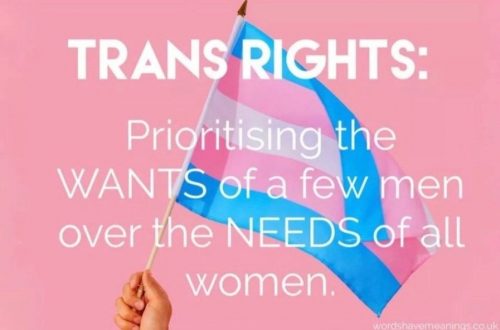This year the UN’s theme for International Women’s Day is: ‘A promise is a promise: Time for action to end violence against women.’ Here are some examples of women (and men) who are taking action or speaking out against violence against women. Lebanese women are going on hunger strike to protest delays in the introduction of a bill against domestic violence.
Rights groups estimate that Lebanese police receive thousands of phone calls from women every year reporting domestic abuse, but fail to intervene because of the absence of a legal framework.
In 2009, one woman from Mount Lebanon complained four times of being beaten her husband before succumbing to wounds inflicted by him.
“We’re telling the politicians: you want women to die, here are some women to die in front of you,” said activist Nay el-Rahi of the hunger strike she is helping organize.
By contrast, in the US President Obama has just signed the reauthorization of the Violence against Women act which aims to protect women who face violence in the home or in the context of trafficking.
Here an unnamed male writer from India reflects on the painful challenges facing his country:
Though, the entire world is talking about the developments of women, the increasing insane activities of rape, murder, molestations and honour killings of women in India has put a big question against the security of the nation as whether we are still ready to celebrate women’s day or is it worth to just celebrate International women’s day without understanding the true meaning and spirit of the day.
Maryam Namazie, from the Council of ex-Muslims, will be speaking in Germany over the weekend with other feminists and secularists including Mina Ahadi, from the International Committee against Stoning and Council of Ex-Muslims of Germany. And here’s a short, but punchy, post from fellow secularist and ex-Muslim, Taslima Nasreen.
One of the first countries to spring to mind in the context of this theme is likely to be Afghanistan. This year the country is marking International Women’s Day with a film festival:
Roya Sadat, chairwoman of the festival, said the festival was designed to “build a better connection between the Afghan women in and outside the country” and act as a forum to debate the challenges they face.
“After the rule of the Taliban, the situation improved in our country particularly for women. Afghan women have joined the cinema in the past few years, and their interests for performing in movies have increased everyday,” said actress and director Aqeela Rezayee.
But, as a post on the F Word reminds readers, women in Afghanistan still face intolerable levels of violence in their day to day lives:
In Afghanistan, as in most parts of the world, violence against women and girls is endemic in society. More than 87% of Afghan women experience domestic abuse, 70% – 80% of marriages are forced, the biggest fear of women under 30 in Afghanistan is sexual assault and women human rights defenders are the targets of violence, harassment and targeted killings.
Last Sunday was International Sex Worker Rights Day. Not all sex workers are female of course, but here’s an extract from a very interesting piece about the way in which violence against sex workers is glossed over by society as a matter of little concern:
Is it not time we came to terms with prostitution? Instead, the prostitute herself (and it is usually her as regards societal venom) becomes the target for culture’s anxieties about sex. The collective attitude would appear to be: “They gets their money, they makes their choice”; that choice being to surrender all claim to humanity’s most fundamental physical and intellectual rights. The result being that across societies, our own “liberal” state included, whore-bashing – literal and metaphorical – is somehow deemed acceptable.
Notably, said bashing includes a cohort of feminist critics who, in abhoring the activity, choose to hate the perpetrator. This is evident not only in Burchill’s string ’em up stance, but the notion that, as “all prostitution is rape”, sex workers cannot know their own minds, or be in control of their bodies, and thus consent. The upshot is a curious coalition with streetwalker-hounding religious extremists who are unhappy not merely with the low-hanging fruit of selling sex, but with women having sex at all.
Finally (and it’s worth noting that not all violence against women is perpetrated by men) one of the most horrific types of violence against women is FGM. Here’s a link to a story about some positive developments in Senegal:
Senegal shows what can be achieved within the space of a generation. The country banned FGM in 1999, though just making it illegal is never enough. Much hard work has since taken place to effectively eliminate the practice across most areas.
For example, local not-for-profit organisations like Tostan, have been active in helping communities abandon FGM. The organisation, headquartered in Dakar, runs an award-winning Community Empowerment Program. This provides a three-year, non-formal programme to villages, which centres around education on human rights. The programme facilitates discussions within communities and provides training sessions in local languages which encourage social change at a grass roots level. It helps to explain the dangers of FGM and child marriage for girls.
This successful initiative is being expanded into ten other countries.


